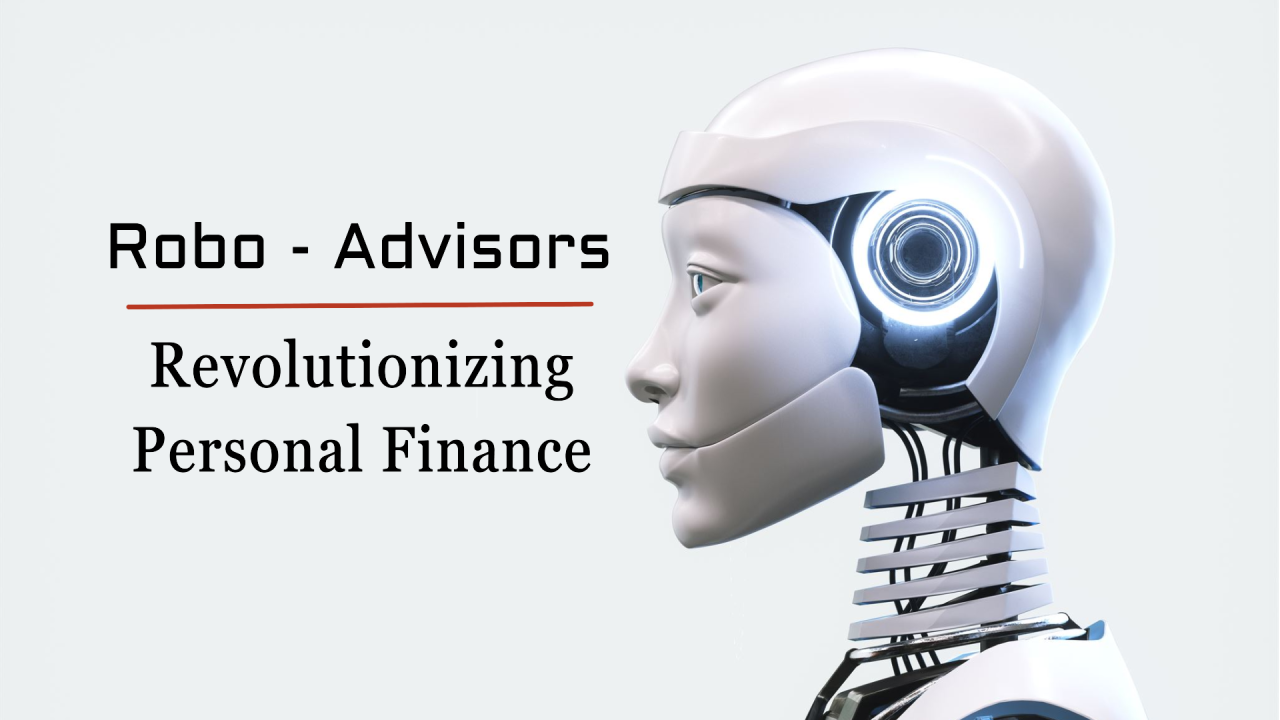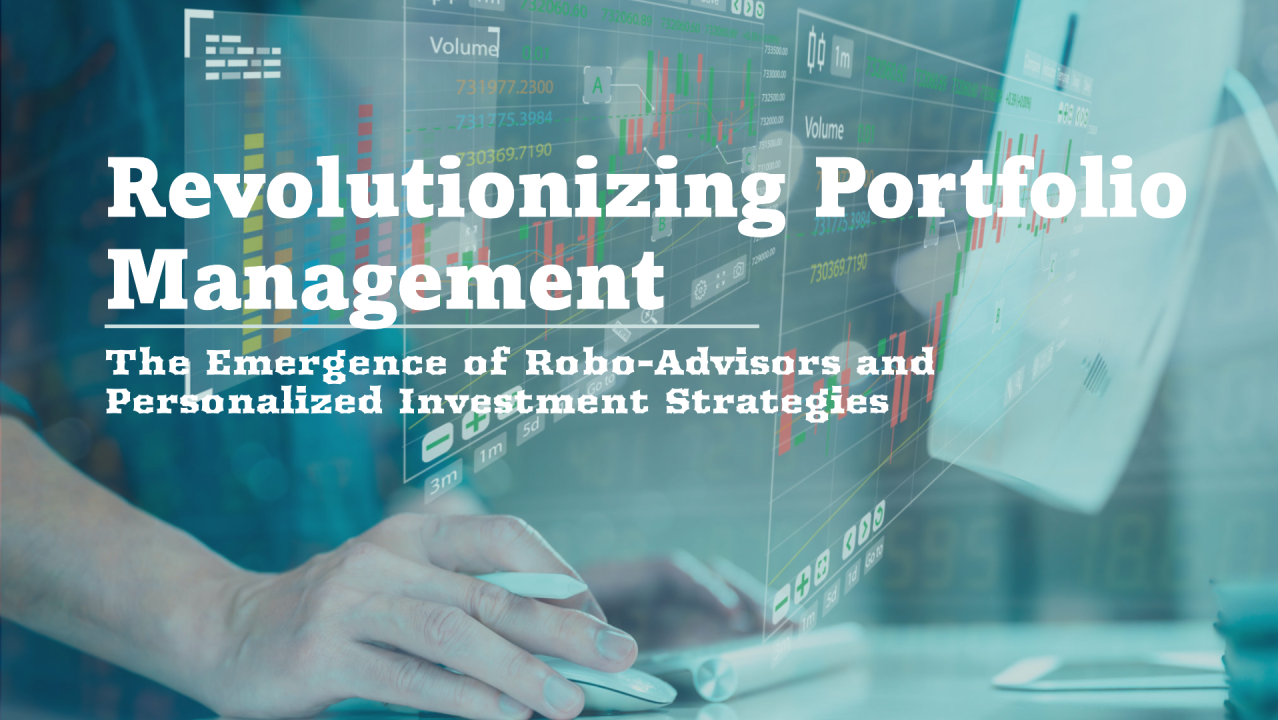
Ground Zero
Unlocking Your Employment Potential
The Rise of AI-Powered Robo-Advisors: How Smart Algorithms Are Reshaping Personal Finance

The Beginning of a Financial Revolution
In a small apartment in Mumbai, Aryan sat at his desk, scrolling through endless investment options on his laptop. Mutual funds, ETFs, stocks—each promising high returns but carrying risks he barely understood. The more he read, the more confused he became. Should he invest in tech stocks? Is crypto still a good option? What about inflation?
Then, an ad popped up: “Meet your AI-powered financial assistant—Invest smartly with zero stress!”
Curious, Aryan clicked. Within minutes, he was taken through a seamless onboarding process, where an AI-driven robo-advisor analyzed his financial goals, risk appetite, and market conditions. It recommended a diversified portfolio tailored just for him.
With a few taps, Aryan made his first investment. No financial jargon, no hours of research—just smart, automated investing.
What Aryan didn’t realize was that he had just stepped into the future of personal finance—a world where artificial intelligence was taking over traditional investing.
What Are AI-Powered Robo-Advisors?
Imagine a financial advisor who never sleeps, never gets emotional, and processes millions of data points in seconds. That’s what AI-powered robo-advisors do.
These digital platforms use advanced machine learning algorithms to analyze market trends, assess risks, and provide personalized investment strategies. Unlike traditional human advisors who charge high fees and often require large investment amounts, robo-advisors offer low-cost, data-driven, and automated financial planning.
Companies like Wealthfront, Betterment, and Stash in the US, and Zerodha’s Nudge, INDmoney, and Scripbox in India, have already revolutionized investing for retail investors.
But how did we get here?
From Wall Street to AI Street: The Evolution of Smart Investing
A decade ago, investing was dominated by financial advisors and fund managers. While they offered valuable insights, their human biases, emotions, and expensive fees often led to inefficient financial planning.
Then, came the fintech boom—the rise of mobile banking, zero-commission trading apps, and AI-driven automation. The 2020 pandemic accelerated this shift as more people looked for cost-effective, remote investment solutions.
Today, over $1.5 trillion is managed by robo-advisors worldwide, and this number is only growing.
So, why are AI-powered financial advisors becoming the go-to choice for modern investors?

Why AI-Powered Robo-Advisors Are Winning the Game
1. Emotion-Free Investing
Market crashes make people panic. Sudden rallies make them overconfident. Human emotions often lead to buying high and selling low—a recipe for disaster.
AI, on the other hand, is purely data-driven. It doesn’t panic in a crash or get greedy in a bull run. It follows market signals, not human emotions.
2. Personalized Financial Planning
Unlike traditional advisors who offer one-size-fits-all advice, robo-advisors analyze individual goals, risk tolerance, and financial behavior before making suggestions.
For example, if Aryan wanted to retire early, the AI would suggest aggressive investments in high-growth stocks. But if he wanted safety, it would recommend bonds and blue-chip stocks instead.
3. Cost-Effective & Accessible
Traditional advisors often charge 1-2% of assets under management (AUM), which can eat into long-term profits. AI-driven platforms typically charge as low as 0.25% or even a flat fee—making smart investing accessible to everyone, even with small amounts.
4. Real-Time Portfolio Adjustments
Unlike humans who review investments quarterly or annually, robo-advisors analyze markets 24/7 and make real-time portfolio adjustments. They rebalance portfolios automatically based on market trends, tax-saving strategies, and economic shifts.
5. Democratizing Financial Knowledge
Many people don’t invest because they feel they lack the knowledge. AI-powered platforms simplify investing by providing easy-to-understand insights, removing the fear and complexity that often discourage beginners.
The Challenges: Can AI Replace Human Advisors?

Despite its advantages, AI in finance is not without risks.
1. Limited Human Understanding
Robo-advisors work with numbers, but they lack the human touch. A traditional advisor can understand emotions, personal life situations, and market rumors—things that AI might miss.
2. Data Privacy Concerns
With robo-advisors collecting personal financial data, concerns about data security and privacy breaches are growing. Who controls the data? How is it protected? These are valid questions regulators are still figuring out.
3. Dependence on Algorithms
AI works on historical data and predictive models. But what happens if unprecedented market conditions arise? The 2008 financial crisis and 2020 pandemic were events that AI models might not have foreseen accurately.
4. Regulation & Ethical Concerns
Many countries still lack clear regulations on how AI-driven financial platforms should operate. Ensuring ethical AI practices and preventing algorithmic biases remain crucial.
The Future of AI in Personal Finance

Despite challenges, AI-powered investing is here to stay. The next decade will likely see:
✅ More Hybrid Models: AI + Human advisors working together for smarter financial planning.
✅ Advanced Predictive Analytics: AI getting better at forecasting market trends.
✅ Greater Adoption in Emerging Markets: Making investing more accessible in India, Africa, and Southeast Asia.
✅ Integration with Blockchain & DeFi: AI-driven smart contracts managing investments.
For investors like Aryan, the future is exciting. The financial industry is shifting from human-driven decision-making to AI-powered intelligence—making investing smarter, safer, and more accessible.
Final Thoughts: Should You Trust AI with Your Money?
If you’re someone who:
✅ Wants automated, data-driven investing
✅ Prefers low-cost, efficient financial planning
✅ Seeks personalized strategies based on goals & risk appetite
Then, AI-powered robo-advisors could be your best financial ally.
However, if you value human insights, personal financial advice, and deep market analysis, then a hybrid model—using AI for automation and human advisors for complex decisions—might be a better fit.
Either way, one thing is clear: the future of personal finance is no longer just human—it’s human + AI.
So, are you ready to let AI invest for you?
What’s Your Take?
Would you trust an AI-powered robo-advisor with your investments? Or do you still prefer human financial advisors? Let’s discuss in the comments!
Bonus: Tools to Explore AI-Powered Investing Today
🚀 Wealthfront & Betterment – Leading robo-advisors in the US
🚀 Zerodha’s Nudge & INDmoney – AI-powered finance tools in India
🚀 Acorns & Stash – AI-driven micro-investing platforms
🚀 AI Trading Bots (e.g., Trade Ideas, Capitalise.ai) – AI-driven stock trading assistants
Discover more from Ground Zero
Subscribe to get the latest posts sent to your email.

0
Welcome to Ground-Zero Family


